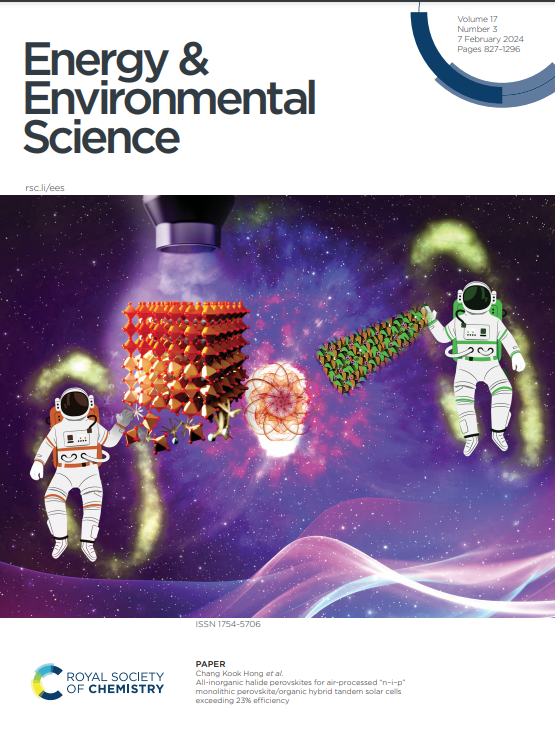Oxygen-Powered Sustainable FePO4 Preparation Routines for Sodium Metal Batteries with Li Acetate Recovery
IF 32.4
1区 材料科学
Q1 CHEMISTRY, MULTIDISCIPLINARY
引用次数: 0
Abstract
Triphylite NaFePO4 emerges as a promising solution for sodium secondary batteries due to its abundant constituent elements and high energy density, making it attractive for sustainable energy storage applications. However, the direct synthesis of triphylite NaFePO4 is hindered by its thermal metastability. In this study, we propose an oxygen-powered sustainable production method for heterosite FePO4, the desodiated form of triphylite NaFePO4, derived from LiFePO4. Oxygen gas serves as the oxidizing agent for delithiating LiFePO4, and a closed-loop process has been successfully established to enable lithium recycling, which is essential for achieving cost-effective FePO4 production. Furthermore, we propose a high energy density metal cell configuration that utilizes the charged state of sodium metal batteries (Na/FePO4 configuration), aiming to improve the cyclability of Na-metal-free cells while maintaining the high energy density, thereby addressing a significant challenge in sodium metal battery technology.求助全文
约1分钟内获得全文
求助全文
来源期刊

Energy & Environmental Science
化学-工程:化工
CiteScore
50.50
自引率
2.20%
发文量
349
审稿时长
2.2 months
期刊介绍:
Energy & Environmental Science, a peer-reviewed scientific journal, publishes original research and review articles covering interdisciplinary topics in the (bio)chemical and (bio)physical sciences, as well as chemical engineering disciplines. Published monthly by the Royal Society of Chemistry (RSC), a not-for-profit publisher, Energy & Environmental Science is recognized as a leading journal. It boasts an impressive impact factor of 8.500 as of 2009, ranking 8th among 140 journals in the category "Chemistry, Multidisciplinary," second among 71 journals in "Energy & Fuels," second among 128 journals in "Engineering, Chemical," and first among 181 scientific journals in "Environmental Sciences."
Energy & Environmental Science publishes various types of articles, including Research Papers (original scientific work), Review Articles, Perspectives, and Minireviews (feature review-type articles of broad interest), Communications (original scientific work of an urgent nature), Opinions (personal, often speculative viewpoints or hypotheses on current topics), and Analysis Articles (in-depth examination of energy-related issues).
 求助内容:
求助内容: 应助结果提醒方式:
应助结果提醒方式:


